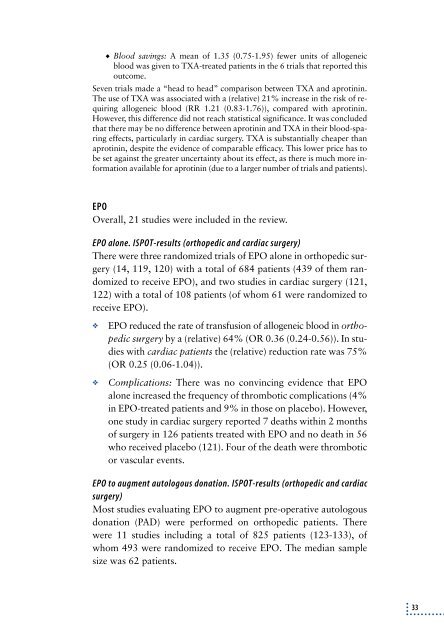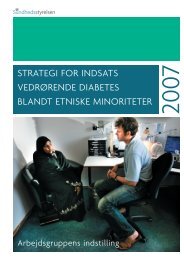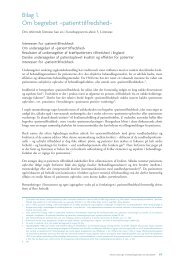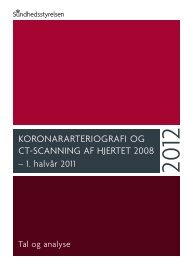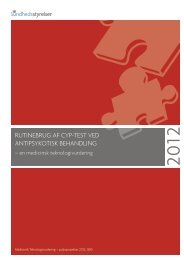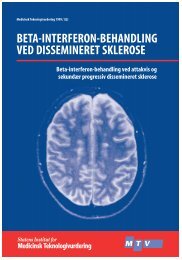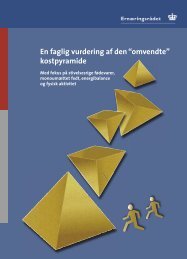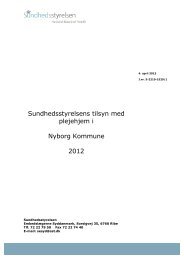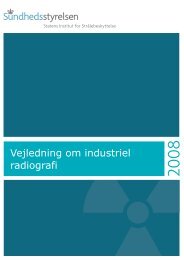Elektronisk udgave - Sundhedsstyrelsen
Elektronisk udgave - Sundhedsstyrelsen
Elektronisk udgave - Sundhedsstyrelsen
Create successful ePaper yourself
Turn your PDF publications into a flip-book with our unique Google optimized e-Paper software.
◆ Blood savings: A mean of 1.35 (0.75-1.95) fewer units of allogeneic<br />
blood was given to TXA-treated patients in the 6 trials that reported this<br />
outcome.<br />
Seven trials made a “head to head” comparison between TXA and aprotinin.<br />
The use of TXA was associated with a (relative) 21% increase in the risk of requiring<br />
allogeneic blood (RR 1.21 (0.83-1.76)), compared with aprotinin.<br />
However, this difference did not reach statistical significance. It was concluded<br />
that there may be no difference between aprotinin and TXA in their blood-sparing<br />
effects, particularly in cardiac surgery. TXA is substantially cheaper than<br />
aprotinin, despite the evidence of comparable efficacy. This lower price has to<br />
be set against the greater uncertainty about its effect, as there is much more information<br />
available for aprotinin (due to a larger number of trials and patients).<br />
EPO<br />
Overall, 21 studies were included in the review.<br />
EPO alone. ISPOT-results (orthopedic and cardiac surgery)<br />
There were three randomized trials of EPO alone in orthopedic surgery<br />
(14, 119, 120) with a total of 684 patients (439 of them randomized<br />
to receive EPO), and two studies in cardiac surgery (121,<br />
122) with a total of 108 patients (of whom 61 were randomized to<br />
receive EPO).<br />
❖ EPO reduced the rate of transfusion of allogeneic blood in orthopedic<br />
surgery by a (relative) 64% (OR 0.36 (0.24-0.56)). In studies<br />
with cardiac patients the (relative) reduction rate was 75%<br />
(OR 0.25 (0.06-1.04)).<br />
❖ Complications: There was no convincing evidence that EPO<br />
alone increased the frequency of thrombotic complications (4%<br />
in EPO-treated patients and 9% in those on placebo). However,<br />
one study in cardiac surgery reported 7 deaths within 2 months<br />
of surgery in 126 patients treated with EPO and no death in 56<br />
who received placebo (121). Four of the death were thrombotic<br />
or vascular events.<br />
EPO to augment autologous donation. ISPOT-results (orthopedic and cardiac<br />
surgery)<br />
Most studies evaluating EPO to augment pre-operative autologous<br />
donation (PAD) were performed on orthopedic patients. There<br />
were 11 studies including a total of 825 patients (123-133), of<br />
whom 493 were randomized to receive EPO. The median sample<br />
size was 62 patients.<br />
33


